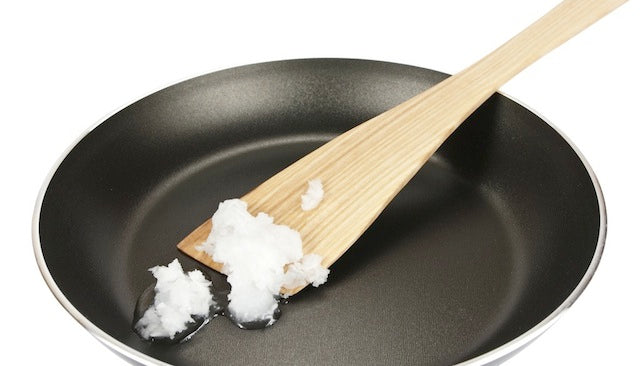Oil Smoke Points
May 23, 2018
What is a smoke point and why does it matter anyway?
Did you know that each type of oil has a different smoke point? This is the point where the oil begins to overheat to the point of producing smoke, toxic fumes, and free radicals so it’s important to be aware of. We know it might seem overwhelming trying to determine which oils are the healthiest and most flavourful, let alone factoring in smoke point information – so we’ve consulted some helpful charts and compiled a handy little guide for you!
Did you know that each type of oil has a different smoke point? This is the point where the oil begins to overheat to the point of producing smoke, toxic fumes, and free radicals so it’s important to be aware of. We know it might seem overwhelming trying to determine which oils are the healthiest and most flavourful, let alone factoring in smoke point information – so we’ve consulted some helpful charts and compiled a handy little guide for you!
What oil should I use for high temperature cooking?
For high temperature cooking, like cooking meats or frying in a wok, it is essential to use an oil with a high smoke point. The best option for this is avocado oil, which boasts a smoke point of 271 C / 520 F. Always make sure to look for organic, cold-pressed oils (the same as you would for coconut oil!). Another option is rice bran oil, with a smoke point of 254 C / 510 F, as it is a good source of antioxidants and Vitamin E. Other oils may have high smoke points, but may not necessarily be healthy, as they may be refined, GMO, or have too much Omega 6 which can cause inflammation in the body.
For high temperature cooking, like cooking meats or frying in a wok, it is essential to use an oil with a high smoke point. The best option for this is avocado oil, which boasts a smoke point of 271 C / 520 F. Always make sure to look for organic, cold-pressed oils (the same as you would for coconut oil!). Another option is rice bran oil, with a smoke point of 254 C / 510 F, as it is a good source of antioxidants and Vitamin E. Other oils may have high smoke points, but may not necessarily be healthy, as they may be refined, GMO, or have too much Omega 6 which can cause inflammation in the body.
What about mid-temperature cooking?
Our favourite, coconut oil , is best for mid-temperature cooking! With a smoke point of 171 C / 350 F and packed with medium chain triglycerides (MCTs) and fats, it’s great for sautéing vegetables and other things at medium temperature. Other oils suited for this temperature are virgin olive oil, or even small amounts of butter (or try coconut butter !).
Our favourite, coconut oil , is best for mid-temperature cooking! With a smoke point of 171 C / 350 F and packed with medium chain triglycerides (MCTs) and fats, it’s great for sautéing vegetables and other things at medium temperature. Other oils suited for this temperature are virgin olive oil, or even small amounts of butter (or try coconut butter !).
And what about salads or making no-bake raw treats?
Some oils have very low smoke points and as such should be used on salads or added to already-cooked foods. The best bet in this category is unrefined flaxseed oil (107 C / 225 F) with a higher ration of omega 3 than omega 6, and extra virgin olive oil (160 C. / 320 F),which is high in Omega 9, a fatty acid which is said to lower the risk of heart attacks and aid in cancer prevention.
Some oils have very low smoke points and as such should be used on salads or added to already-cooked foods. The best bet in this category is unrefined flaxseed oil (107 C / 225 F) with a higher ration of omega 3 than omega 6, and extra virgin olive oil (160 C. / 320 F),which is high in Omega 9, a fatty acid which is said to lower the risk of heart attacks and aid in cancer prevention.
Coconut oil
is a great option for making raw treats
like
fudge
and
chocolate
due to its high melting point (24c) so it solidifies and helps other ingredients hold shape when placed in the fridge or freezer!
Which cooking oils should I avoid?
Of course, there are many oils or fats to avoid – ones that are processed, refined, and unnatural! These include canola oil, sunflower oil, rapeseed oil, corn oil, margarine, vegetable oil or any fake butter substitutes. However, with all the above options, these shouldn’t be a problem to avoid!
Of course, there are many oils or fats to avoid – ones that are processed, refined, and unnatural! These include canola oil, sunflower oil, rapeseed oil, corn oil, margarine, vegetable oil or any fake butter substitutes. However, with all the above options, these shouldn’t be a problem to avoid!